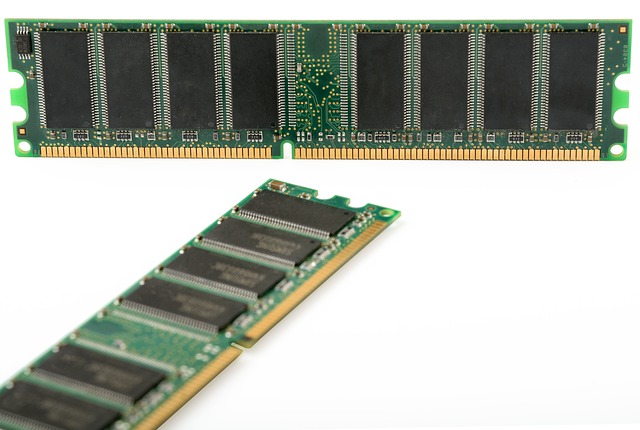In Eugene, Oregon, inclusive transport goes beyond convenience, aiming to ensure equity and social inclusion for all residents. Traditional rideshare services often fail to meet the needs of those with disabilities or mobility constraints, leading to isolation. Inclusive transport solutions in Eugene cater to these demands by offering tailored services accessible for wheelchairs, door-to-door pickup, and trained drivers, overcoming landscape challenges. The city enhances its inclusive reputation while improving residents' quality of life and fostering a sense of belonging through these initiatives. Local and regional companies provide specialized services and technology, breaking down barriers and creating an environment where all residents can travel comfortably and safely. Collaboration between authorities, disability groups, and rideshare companies is vital to identify unmet needs and ensure a welcoming transport ecosystem. Eugene's successful implementations serve as a benchmark for other cities aiming to create more inclusive and equitable transportation systems. Expanding accessibility and enhancing driver training are key to the future of inclusive transport in Eugene Oregon.
In recent years, the demand for accessible and inclusive rideshare services has gained significant traction, particularly in diverse urban centers. This article explores the need for and current state of inclusive transport in Eugene, Oregon, focusing on its growing rideshare industry. We delve into challenges faced by individuals with disabilities and others, highlighting best practices and successful innovations. By examining case studies and future recommendations, we aim to enhance accessibility in Eugene’s rideshare sector, ensuring a more inclusive mobility experience for all.
- Understanding the Need for Inclusive Transport in Eugene, Oregon
- Current State of Rideshare Services in the Region
- Challenges Faced by Individuals with Disabilities and Others in Accessing Rideshare
- Best Practices and Innovations in Creating Inclusive Rideshare Systems
- Case Studies: Successful Implementation of Inclusive Transport Solutions
- Future Directions and Recommendations for Enhancing Accessibility in Eugene's Rideshare Industry
Understanding the Need for Inclusive Transport in Eugene, Oregon

In Eugene, Oregon, understanding the need for inclusive transport goes beyond mere convenience; it’s a matter of equity and social inclusion. The city, known for its vibrant culture and diverse community, must ensure that everyone, regardless of physical ability, age, or socioeconomic status, can access transportation easily. Traditional rideshare services often fall short in catering to these needs, leading to isolation for many residents who depend on accessible options. This is where inclusive transport comes into play, offering tailored solutions that promote independence and participation in the community.
Eugene’s landscape is diverse, with hills, parks, and a bustling downtown area, posing unique challenges for those using mobility aids or facing various disabilities. An inclusive transport system aims to bridge these gaps by providing services that accommodate wheelchairs, offer door-to-door pickup, and have trained drivers who can assist passengers. By embracing such initiatives, Eugene not only enhances its reputation as an inclusive city but also improves the quality of life for its residents, fostering a sense of belonging and access to opportunities beyond their immediate surroundings.
Current State of Rideshare Services in the Region

In Eugene, Oregon, rideshare services have evolved to meet the diverse needs of the community, with a growing focus on inclusive transport. While major players in the industry have traditionally dominated, there’s a noticeable shift towards more inclusive options that cater to everyone, including those with disabilities and limited mobility. This trend reflects a broader national movement towards accessibility and equitable access to transportation.
The current landscape features several local and regional rideshare companies that prioritize inclusive transport through specialized services and technology. These initiatives ensure that individuals who previously faced barriers in using rideshare services can now do so comfortably and safely. From wheelchair-accessible vehicles to real-time communication with drivers, these improvements are making Eugene’s transportation network more welcoming and accessible for all residents, fostering a more inclusive community overall.
Challenges Faced by Individuals with Disabilities and Others in Accessing Rideshare

In Eugene, Oregon, as in many cities across the nation, individuals with disabilities often face significant challenges when it comes to accessing rideshare services. Barriers include a lack of accessible vehicles equipped with features like wheelchair lifts or ramp entrances, which hinder mobility for those using wheelchairs or other assistive devices. Additionally, visual and auditory impairments pose difficulties during booking processes that primarily rely on digital interfaces and verbal communication with drivers. These challenges not only limit independence but also contribute to social isolation, affecting the overall quality of life for this community.
Furthermore, cognitive disabilities can make it challenging for some riders to communicate effectively with drivers or understand complex schedules and routes, leading to potential safety risks and frustration. Language barriers can also create issues, especially for non-native speakers who might struggle to convey their destinations clearly. These challenges underscore the need for inclusive transport solutions in Eugene Oregon, aiming to ensure accessibility and comfort for all residents, fostering a more integrated and supportive community.
Best Practices and Innovations in Creating Inclusive Rideshare Systems

Creating inclusive rideshare systems in Eugene, Oregon involves best practices that go beyond accessibility features. It begins with comprehensive training for drivers on disability awareness and sensitivity, ensuring a welcoming environment for all passengers. Technologies such as mobility aids, wheelchair securement, and visual/audio navigation tools are integral to this process, making the service accessible to people with diverse needs.
Innovations like dynamic pricing structures that consider the additional time required for certain trips, real-time communication through dedicated apps, and options for non-verbal communication enhance the experience further. Collaboration between local authorities, disability advocacy groups, and rideshare companies is key to identifying and addressing unmet transportation needs within the community, fostering a more inclusive transport ecosystem in Eugene, Oregon.
Case Studies: Successful Implementation of Inclusive Transport Solutions

In recent years, cities across the globe have been actively pursuing inclusive transport solutions to cater to the diverse mobility needs of their communities. Eugene, Oregon is no exception, with several successful implementations that set a benchmark for other urban centers. One notable example involves the introduction of specialized rideshare services tailored for individuals with disabilities or reduced mobility. These services employ trained drivers who operate accessible vehicles, ensuring safe and comfortable transportation options for all. By integrating advanced technologies, such as lift-equipped vans and user-friendly booking apps, Eugene has significantly enhanced its inclusive transport offerings.
The impact of these initiatives is evident through numerous case studies. Local organizations and community members have expressed heightened satisfaction levels, praising the improved accessibility and convenience. Data also indicates a significant increase in the number of trips taken by previously underserved populations, suggesting that these inclusive transport solutions are fostering greater social inclusion and participation within the city. Eugene’s proactive approach serves as an inspiring model for other cities aiming to create more inclusive and equitable transportation systems in Eugene Oregon.
Future Directions and Recommendations for Enhancing Accessibility in Eugene's Rideshare Industry

Looking ahead, there are several strategies to further enhance accessibility in Eugene’s rideshare industry and create a more inclusive transport system for all residents. One key direction is expanding options for individuals with disabilities, including wheelchair accessibility and specialized vehicles. Encouraging rideshare companies to invest in training their drivers on disability awareness and sensitivity can also foster a welcoming environment.
Additionally, implementing dynamic pricing and offering subsidies for low-income commuters could make ridesharing more affordable and accessible. Collaboration between local authorities, transit agencies, and rideshare providers is essential to develop comprehensive solutions that integrate seamlessly with existing public transportation infrastructure, ultimately aiming to create an inclusive transport ecosystem in Eugene, Oregon.
